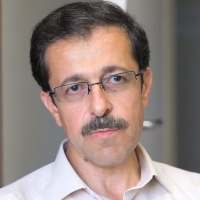The role of GABAA receptor activity in post-ictal depression period in a rat kindling model of epilepsy
Author(s):
Abstract:
Introduction
Following the seizure there is an inhibitory period named “post-ictal depression period” which has a depressing effect on the following seizure. In this study, the role of GABAA receptors on post-ictal depression period was investigated in amygdala kindling model of epilepsy in rat. Materials And Methods
Animals were kindled by electrical stimulation of amygdala. Then, they were divided into four groups. Different groups of kindled animals were received a second stimulation at 10, 30, 60 and 90 min after the first stimulation and the percentage of suppression of seizure parameters after the second stimulation was calculated. In another four groups, bicucullin, a selective GABAA receptor antagonist (100 nM), was intra-cerebroventricularly microinjected 10 min before the second stimulation and its effect on the percentage of suppression induced by the first stimulation was investigated. Six animals were used in each group. Results
When the second stimulation was applied at 10 and 30 min after the first stimulation a significant reduction was observed in the seizure severity and seizure parameters were depressed after the second stimulation. Bicucullin microinjection significantly decreased the percentage of depression in seizure parameters following the second stimulation compared to the animals received the solvent alone (P<0.05). This decrease was significant when the second stimulation was applied at 10 and 30 min after the first stimulation. Conclusion
Obtained results showed that activity of GABAA receptors by endogenous GABA is one of the mechanisms involved in post-ictal depressing period. However, the blocking of these receptors could not completely prevent this period. Thus, other factors have also role in its inductionLanguage:
Persian
Published:
Koomesh, Volume:10 Issue: 2, 2008
Page:
85
https://magiran.com/p614538
سامانه نویسندگان
مقالات دیگری از این نویسنده (گان)
-
Comparing the Seizure-induced Impairment of Short-term Plasticity in Dorsal and Ventral Hippocampus in Kindled Mice
Nahid Roohi, Mahboubeh Ahmadi, Yaghoub Fathollahi, Amir Shojaei, Javad Mirnajafi-Zadeh*
Basic and Clinical Neuroscience, Sep-Oct 2024 -
An analysis of epileptogenesis-related proteins involved in cAMP signaling
Elahe Dashtban Moghadam, Khosro Khajeh *, Shima Khodaverdian, Bahareh Dabirmanesh, Javad Mirnajafi-Zadeh, Yaghoub Fatholahi
Journal of Molecular and Cellular Research,



